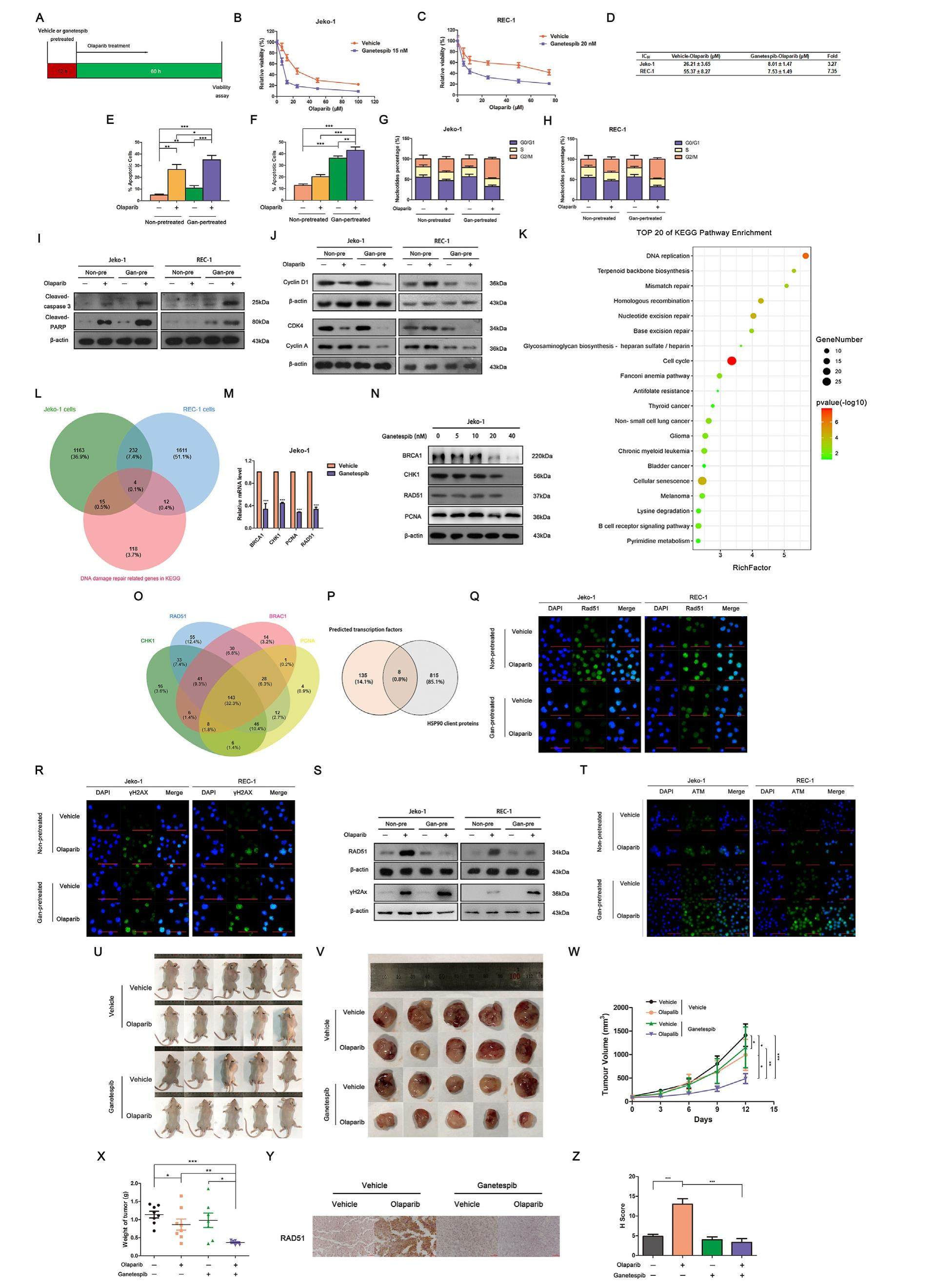
Transient HSP90 inhibition enhances the sensitivity of mantle cell lymphoma to poly (ADP-ribose) polymerase (PARP) inhibitors


Mantle cell lymphoma (MCL) is an aggressive subtype of non-Hodgkin lymphoma (NHL) characterized by the overexpression of cyclin D1 and deregulated cell cycle. Ganetespib (STA-9090), a second-generation HSP90 inhibitor, dramatically disrupted oncogenic cellular processes resulting in the inhibition of client protein-derived tumors in preclinical studies. The synthetic lethal strategy using poly (ADP-ribose) polymerase (PARP) inhibitors (PARPis) has been reported as a powerful therapeutic intervention in MCL and their effectiveness can be increased by a deficiency in DNA damage repair (DDR), especially homologous recombination deficiency. Since we found earlier that transient ganetespib treatment can induce defects in DDR, we hypothesized that ganetespib treatment can possibly enhance the sensitivity of MCL cells to PARPis and HSP90 and PARP is can be demonstrated as promising combination therapies for MCL.
